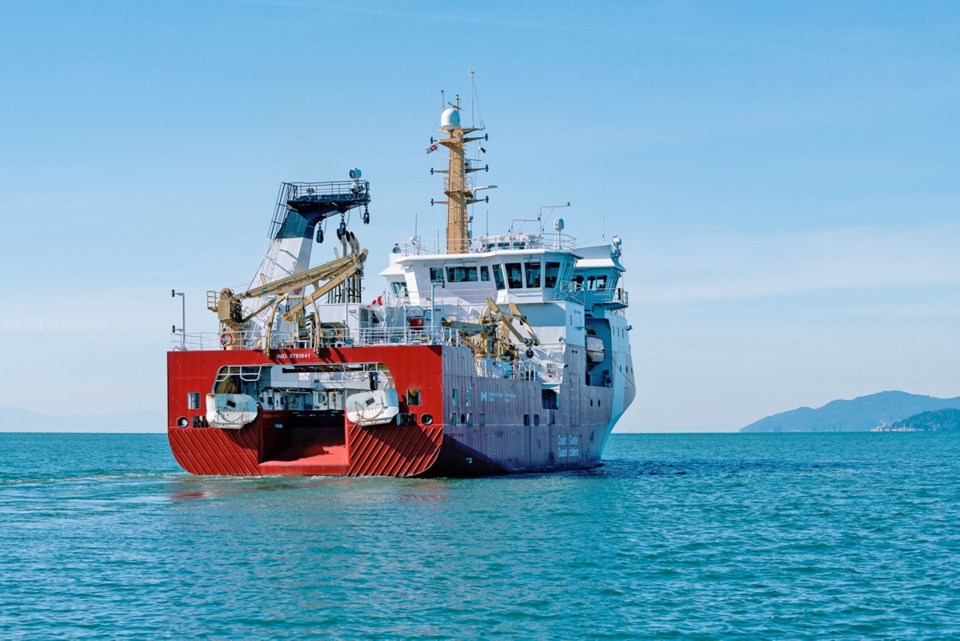The second offshore fisheries science vessel designed and built by Seaspan Shipyards in Vancouver for the Canadian Coast Guard has been handed over to its new owners.
The vessel, which was launched in June and will eventually be christened the Capt. Jacques Cartier, has been handed over to the coast guard following sea trials conducted this fall off Victoria.
“At Seaspan, we know that building ships requires you to build more than ships. You need to build a workforce, an industry, a supply chain and strong partnerships,” Seaspan chief executive Mark Lamarre said in a statement on Wednesday.
“Built in Canada for Canada, the Capt. Jacques Cartier is the accomplishment of many. So thank you and congratulations to the Canadian government and especially our Canadian Coast Guard partners; to the engineers and naval architects who designed her; to the skilled tradespeople who built her; and to the Canadian companies from coast to coast who contributed parts and expertise.”
The Jacques Cartier, like its sister ship the Sir John Franklin, is equipped to support government scientists in the collection and analysis of data on Canada’s marine ecosystems and the impact of climate change.
The vessel features a full suite of state-of-the-art systems, including high-tech fishing trawls and four science labs.
“The scientific work that will be undertaken on the CCGS Capt. Jacques Cartier, and her sister ships, will undoubtedly enhance our understanding of our marine ecosystems, and the impacts of climate change,” said Bernadette Jordan, minister of fisheries and oceans, and the Canadian Coast Guard. “By investing in the coast guard, our shipbuilding industry, and Canadian science we are moving forward to best protect our environment, while supporting economic growth.”
The Jacques Cartier will be based in Dartmouth, N.S., and will also support search-and-rescue operations and environmental response.
Seaspan delivered the first offshore fisheries science vessel, the CCGS Sir John Franklin, in June.
The Franklin was the first newly built large ship in the fleet for 30 years, and the first large vessel designed and built under the federal government’s national shipbuilding strategy.
A third science vessel is under construction at Seaspan in Vancouver. It is structurally complete and on schedule to be delivered in August 2020.



